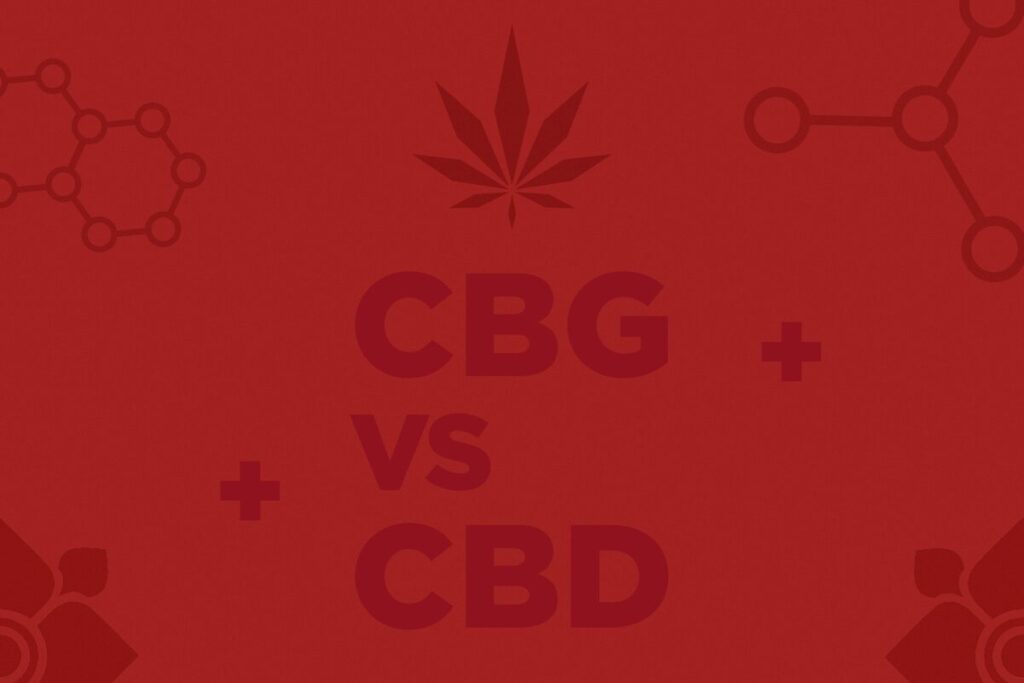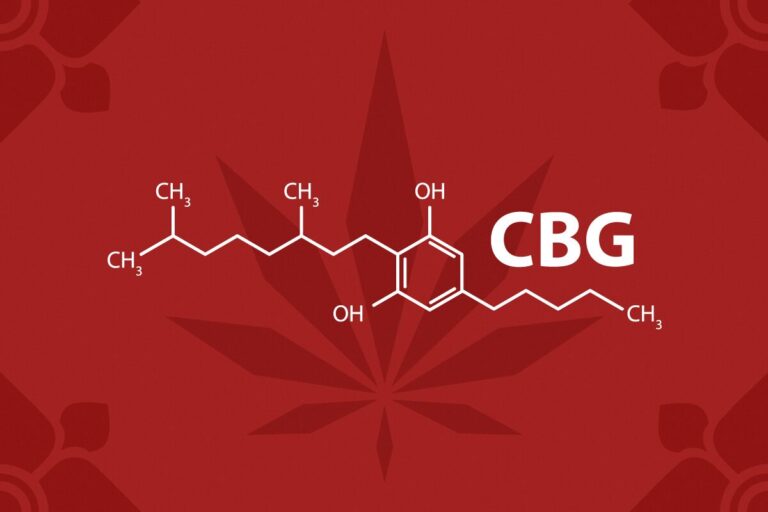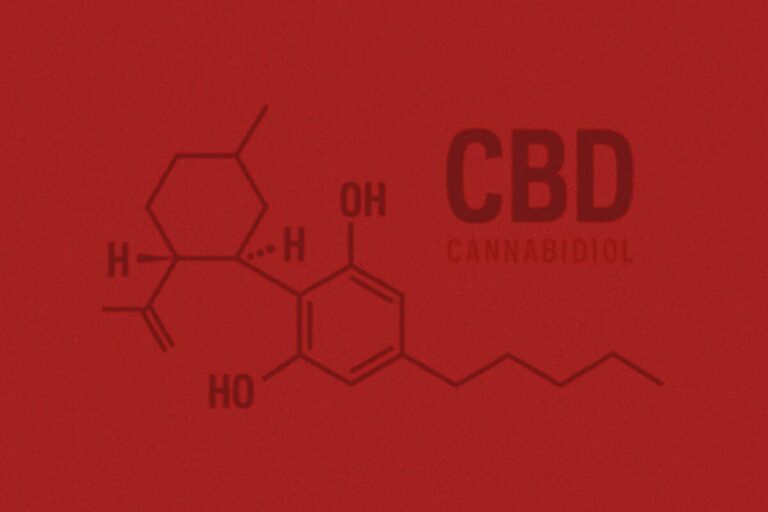Since both CBG and CBD come from the same cannabis plant, some of you might think that these two cannabinoids are siblings. Unfortunately, they are not. CBG is known to be the mother of all cannabinoids which makes CBG a mother of CBD.
So, except for that fact, what’s the difference between these two and is it something good for your wellness? Let’s explore.
Key Takeaways
- CBG and CBD aren’t siblings, in fact, CBG is CBD’s mother.
- Both CBG and CBD don’t produce high effects.
- CBG doesn’t produce sleepiness or drowsiness, unlike CBD.
- The consumption methods of both CBG and CBD are the same.
- CBG has the potential to treat inflammatory bowel disease and glaucoma with antibacterial properties and stimulate appetite.
- CBD can help with epilepsy, insomnia, chronic pain, and mental health disorders.
- Both cannabinoids can cause some side effects such as dry eyes and diarrhea.
- It is safe to mix CBG with CBD.
What is CBG?
CBG, also known as cannabigerol, is the first chemical compound in cannabis – aka the mother of CBD and other compounds. Cannabigerol is usually found in young cannabis plants which contain CBGA, an acidic form of CBG before it naturally transforms into various other cannabinoids, including cannabidiol (CBD) and tetrahydrocannabinol (THC), as the plant matures. That resulted in only small amounts of CBG left (about 1%) in grown cannabis plants making them rare and pricey.
What is CBD?
Cannabidiol (CBD) is one of the most well-known cannabinoids derived from cannabis plants along with its siblings, like THC. It is psychoactive meaning that it has effects on our mind but it does NOT cause intoxication or “high”.
What’s the difference between these two?
Both cannabigerol (CBG) and cannabidiol (CBD) are non-intoxicated compounds derived from the same plants and are beneficial to help with medical treatment for several conditions. CBG and CBD are also similar in potential benefits to help support normal mood and stress as well as offer relief from discomfort and soreness.
However, the major difference that differentiates CBG and CBD is that CBG is a minor cannabinoid which means that it was produced in much less than a major cannabinoid, CBD. Another difference is that CBG is best known for concentration and focus, while CBD promotes healthy sleep quality and muscle recovery. CBG also does not produce a feeling of sleepiness or drowsiness as many reported to enhance alertness and focus. However, please note that CBG effects vary from person to person depending on factors such as dosage, health, physiology, and environmental influences.
CBG vs CBD: Consumption Method
The method to consume both cannabigerol (CBG) and cannabidiol (CBD) are pretty much the same with similar products which are available in the following forms:
Oils: The cannabinoids are blended with carrier oil and are taken by dropping under the tongue or mixed with food and drinks.
Capsules: The product is made from the same oil formula but in a capsule casing for those who do not like the taste of oil.
Creams and Lotions: They are made for applying to the skin only.
Edibles: Like gummies, cookies, brownies, and other forms.
Health Benefits of CBG
Although there are not many findings of CBG’s potential therapeutic benefits when compared to other cannabinoids like CBD and THC. However, what we have known so far is full of promise which includes:
- CBG was studied in mice experiments and came up with a delightful result of its anti-inflammatory potential to treat inflammatory bowel disease.
- A European study has shown studies of CBG’s potential antibacterial properties as it has been used for skin infection treatments since the 1950s.
- CBG has also been studied for its potential to reduce pressure in the eyes of patients which can be caused by or develop into glaucoma.
- Another 2017 study has also found an important finding of CBG’s properties which is the potential to stimulate appetite in patients with late-stage cancer and other diseases.
Health Benefits of CBD
Cannabidiol (CBD), just like cannabigerol (CBG), also plays an important role in the medical industry with its impressive potential for health benefits including:
- In 2018, the FDA approved the first cannabis-derived drug called Epidiolex to treat 2 rare and severe forms of epilepsy; Dravet syndrome and Lennox-Gastaut syndrome.
- CBD has shown its potential to help with mental health disorders including anxiety disorders, depression, and post-traumatic stress disorder (PTSD).
- A 2018 study found the use of CBD to relieve pain such as in patients with malignant diseases.
- Another recent study from 2022 suggested that CBD may help with insomnia.
Potential Side Effects of CBG and CBD
In general, CBG is reported to be safe and has a great profile in offering positive effects. However, some individuals may experience adverse effects while others may not. Common side effects of CBG include:
- Headache
- Drowsiness
- Dry eyes
- Dry mouth
- Nausea
- Diarrhea
CBD, although, it is well-tolerated and safe, there’s also some evidence from the FDA of the United States that CBD may be harmful to some people, which those side effects may include:
- Drowsiness or sleepiness
- Diarrhea
- Liver injury
- Changes in appetite
- Interacting with other medications
Other undesirable effects some individuals might experience also include dry mouth and fatigue.
Can I mix CBG with CBD?
If you are thinking about mixing CBG with CBD, then let me tell you that you’re about to mix the best of both. YES, you can safely take these two cannabinoids together. When CBG and CBD team up, they can boost each other’s strengths and provide fewer side effects than when using each one alone.
Final Words
While CBG and CBD are similar in many aspects such as they are not intoxicated and have the same methods to consume, there are some evident differences. Most importantly, they are both abundant in medical properties which can help a large number of patients suffering from certain medical conditions such as rare epilepsy like Dravet syndrome and more. Mixing CBG and CBD is also safe and effective as they strengthen each other’s properties.





